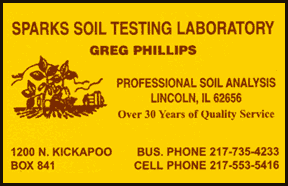| ||||||||||
| ||||||||||
"It's bad, but how bad is the question?" Gheit said. "The outlook couldn't be more grim, and yet the government finds a way to kick them when they're down." Bary, the EPA spokesman, said there's no way to know exactly how much cleaner the air would have been under federally approved permits. But Neil Carman, an air specialist with the Lone Star Chapter of the Sierra Club who spent years as an industrial plant inspector with the Texas Commission on Environmental Quality, said he's certain ending the program will cut emissions. He said it will prove costly to the companies, but not as costly as treating long-term health problems caused by toxic emissions. Al Armendariz, a chemical engineering professor at Southern Methodist University who is an expert on air pollution and an environmental advocate, said smaller and older facilities could face hefty costs, but major companies won't feel a thing. "They'll say, 'Look, if we have to spend half a million dollars to re-permit, big deal.' They probably spend more than that on toiletries for those facilities," he said, noting that even multimillion-dollar expenses would be a "one-time capital blip" for major companies. Armendariz also said he doubts industry claims that consumers could feel any pain.
The oil and gas industry provides about 190,000 Texas jobs and paid about $10 billion in state and local taxes and royalties last year, according to the oil and gas association, which represents almost every producer and refiner in the state. The chemical industry employs about 74,000 Texans and last year paid $1 billion in state and local taxes. The chemical industry is the top air polluter in the state, producing about 16,000 tons of toxic emissions, according to the most recent EPA toxic release inventory in 2007. Oil ranked third, behind power plants, with about 4,500 tons. Both groups and state regulators say flexible permits have helped, and point to reductions of cancer-causing chemical benzene and ground-level ozone levels in the Houston area that's home to the bulk of the state's oil refineries and chemical plants. But Carman said it's silly to be content with the progress because Texas is still so polluted. "That's like somebody going before a judge and saying, 'Your Honor, I know I've had a DWI problem, but I brought it down from 50 DWI's a year ago to 30 now,'" said Carman, who like other environmentalists has long derided the permitting process as a rubber stamp in an industry-friendly state. "That's just not enough, especially when you're talking about things that cause cancer."

[Associated
Press;
Copyright 2009 The Associated Press. All rights reserved. This material may not be published, broadcast, rewritten or redistributed.

News | Sports | Business | Rural Review | Teaching & Learning | Home and Family | Tourism | Obituaries
Community |
Perspectives
|
Law & Courts |
Leisure Time
|
Spiritual Life |
Health & Fitness |
Teen Scene
Calendar
|
Letters to the Editor